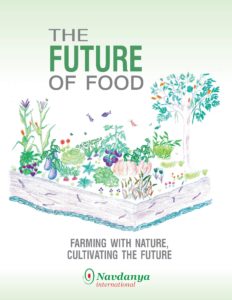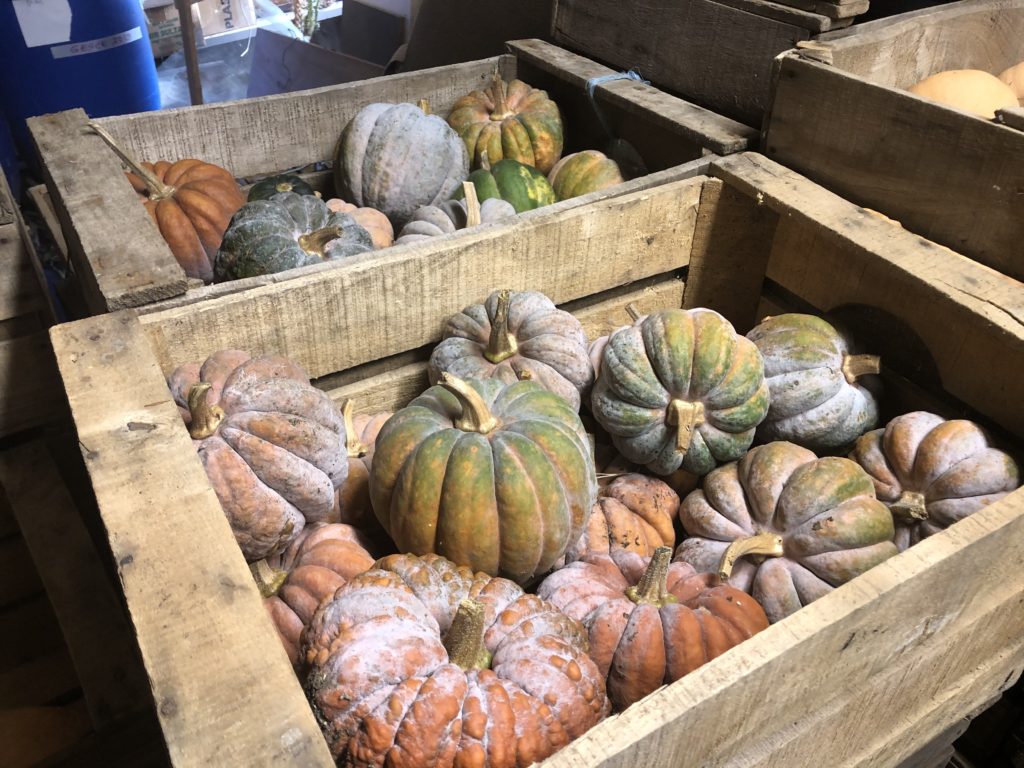By Navdanya International – Comune-info, 24 November 2019 | Source
Navdanya International ’s annual report outlines the attacks of agro-business lobbies and the negative consequences that investments by large agro-industrial companies have on land, soil, biodiversity, human health and small and medium agricultural producers. The transformation that counteracts all of this has, nonetheless, already begun and Navdanya points out as well the actions from the bottom up, that are capable of revolutionizing the current productive system. Do we want to work in harmony with the laws of nature or continue with this violence against the land so that we can eat food produced in laboratories that comes from an increasingly artificial agriculture? “We want food which comes from an agriculture that takes care of the land, that provides the solution to the ecological, climatic and health crises”, replies Vandana Shiva.
’s annual report outlines the attacks of agro-business lobbies and the negative consequences that investments by large agro-industrial companies have on land, soil, biodiversity, human health and small and medium agricultural producers. The transformation that counteracts all of this has, nonetheless, already begun and Navdanya points out as well the actions from the bottom up, that are capable of revolutionizing the current productive system. Do we want to work in harmony with the laws of nature or continue with this violence against the land so that we can eat food produced in laboratories that comes from an increasingly artificial agriculture? “We want food which comes from an agriculture that takes care of the land, that provides the solution to the ecological, climatic and health crises”, replies Vandana Shiva.
„What’s the future of food?“ The authors of the report „The Future of Food – Farming with Nature, Cultivating the Future“, edited by Navdanya International and available for free download online, analyze the trend of the global production system, describing the disastrous effects that the investments of large agro-industrial corporations have on the earth, the soil, biodiversity, human health and small and medium agricultural producers. The necessary transformation has, however, already begun. The report analyses, through case studies across the globe, the alternatives that are being developed in local areas, from the bottom up, and that are only waiting to be recognized as such and promoted at a systemic level.
Among the authors of the report Vandana Shiva, president of Navdanya International, examines the two paths that agricultural systems are facing: on the one hand the path of life that includes the principle of diversity, the law of return and the sharing of the commons; on the other hand the path of death, undertaken by the Poison Cartel and based on an unsustainable paradigm, the extensive use of synthetic chemical fertilizers and pesticides, GMOs, monocultures and Big Data, which leads to the creation of Fake Food and artificial knowledge. The author calls for the decolonization of food cultures and the end of the era of food imperialism: „Do we want to work in harmony with the laws of nature – asks the Indian environmentalist – or continue with violence against the land to eat food produced in laboratories and from an increasingly artificial agriculture? We want food which comes from an agriculture that cares for the earth, which provides the solution to the ecological climate and health crises”.
An analysis supported by the research of Nadia El-Hage Scialabba, food ecology expert with 30 years of experience at FAO and member of the International Commission on the Future of Food and Agriculture. The author outlines the illusions, false promises and attacks of industrial agribusiness, from the first green revolution to the renewed attempts to impose the industrial agriculture model in different guises. She also describes the real state of organic farming, how it fits into the current socio-political landscape, and the support it enjoys from important international institutions. On the other hand, that of agribusiness, we find instead the tactics used by the industry to undermine the credibility of independent science and discourage the transition towards an ecological and sustainable agri-food model. This is a real attack against small and medium sustainable production that sees the industry lobby at work, also in Italy, as demonstrated by the recent attacks on the initiatives of the Italian Minister of Education Fioramonti, who intends to discourage the presence of junk food in schools and promote environmental education.
Education, along with the promotion of a healthy diet is, on the other hand, essential both for our health and to reduce greenhouse gas emissions produced by industrial agriculture, which is among the major contributors to climate change, as noted by geneticist Salvatore Ceccarelli, who emphasizes the value of traditional seeds, which, through natural breeding enhanced by the active participation of farmers and agronomists, are able to adapt to diverse climate and geographical scenarios over time and to evolve adaptability and resilience.

The report presents various case studies showing the difficulties of small organic producers in areas dominated by intensive monocultures. This is the case with organic farms in Trentino Alto Adige, where organic farmers are threatened on a daily basis by pesticide drifts caused by surrounding intensive monocultures of apples. A particular focus is on the case of Mals, the first municipality to hold a referendum against pesticides. The situation is dramatic, but one can’t lose hope for a radical transformation towards a sustainable future for food and agriculture. There are many virtuous examples. First of all, the Indian state of Sikkim, which has managed to convert 100% of its agricultural production to organic farming, while facing resistance from the opposition and from farmers, but continuing with determination to carry out a political project that has lasted 25 years.
Then there are the numerous small realities and local governments and municipalities that, through sustainable choices and actions of resistance, continue to promote and implement resilient and healthy production systems. In Italy 70 municipalities have already introduced measures to limit or ban the use of pesticides; in France 56 municipalities have also inspired metropolitan areas to ban the use of pesticides containing glyphosate; in the Philippines 200 municipalities have signed an agreement to preserve the soil and ban the use of toxic agrochemicals and, since 2017, the League of Organic Municipalities and Cities in the Philippines has a decisive influence on institutional decision-making processes. In Argentina, civil society movements have been protesting against Monsanto’s patents on seeds, while in Brazil, organic producers who practice agroecology are daily resisting threats and violence from the agricultural industry that makes extensive use of GMO seeds and pesticides (in 2017 alone more than 539.9 thousand tons of active pesticide activity were used in the country). In Costa Rica, organic farmers work in harmony with tropical biodiversity, which is, however, constantly at risk of disappearing due to the expansion of green deserts of monocultures. In Nigeria, civil society movements are denouncing the shortcomings of local and national institutions in countering the expansion of the industrial agricultural model and the approval of GMOs.
Other examples of small virtuous realities working with Navdanya International are described in the report, such as the „Bread of Freedom“ movements in the Philippines, which provides education on ecological and sustainable practices that have a positive impact on people’s health; „Yayasan Emas Hitam Indonesia„, an organization that practices permaculture in Indonesia and that aims at promoting, supporting and developing regenerative solutions to poverty and development throughout the territory; „GMO & Poison Free Zones“ is an initiative launched by activists and farmers concerned about the high level of contamination by GMOs and agrochemicals in South Africa, aimed at creating „GMO and poison free zones“ and put pressure on the government for stricter standards for Maximum Residue Limits (MRLs) in South Africa; „Círculos de Sementes“ in Portugal, responded to the first global call to action for seed freedom launched by Navdanya in 2012 and from there created a national network of „Circles of Seeds“, as well as an educational program of agroecology; „Peliti„, a Greek non-governmental organization that deals with the protection and dissemination of traditional seeds through a large national network of seed banks and that, since 2011, every year, together with Navdanya, organizes one of the largest and most popular International Seed Festivals.
From local to global, there are many possible creative solutions for a transition towards Poison-free Food and Farming, which are increasingly supporting each other and forming a global network, but which also need effective support from institutions, local governments, citizens/consumers and producers. An example of this is the network of movements and farmers in the north-east of the United States gathered by Sterling College (USA) on the occasion of Navdanya International mobilization tour in May 2019, and the movement of students from California Universities, which has achieved the objective of banning the use of chemical herbicides in all green areas of state campuses.
Translation by Navdanya International
Photo by Riccardo Troisi for Comune-info
